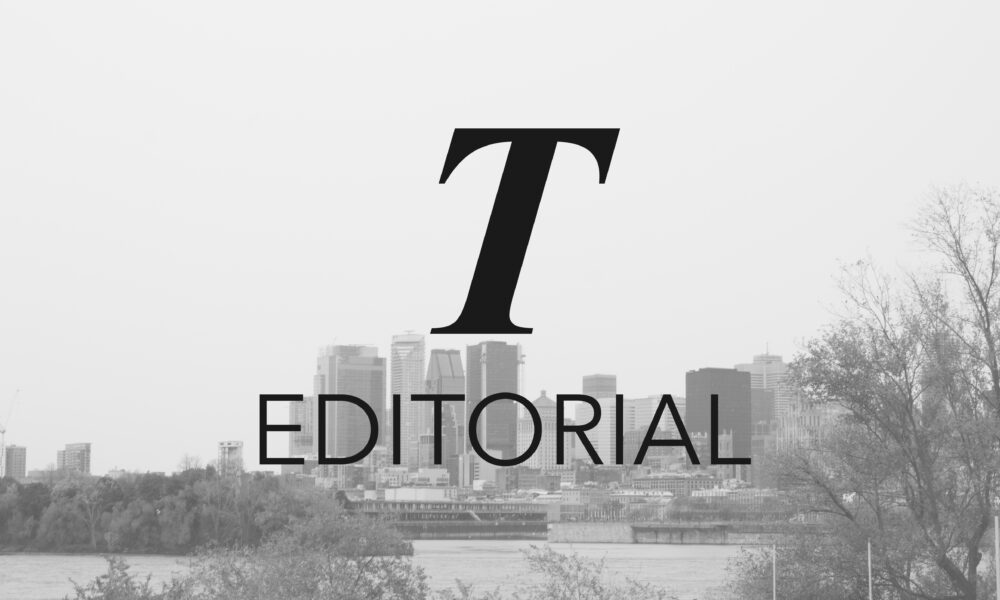As the housing crisis in Montreal persists, neither the city government nor its citizens are addressing the unhoused population with the empathy and urgency they deserve. A coalition of residents from Saint-Henri recently expressed anger over a decision to build a four-storey housing complex for unhoused individuals and a supervised drug use site near an elementary school. This is just the most recent example of a widespread phenomenon of communities opposing the creation of services for the unhoused in the name of “protecting” their neighbourhood. Simultaneously, the city of Montreal has continued forced evictions of encampments around the city, including those living under Route 136 of the Ville-Marie expressway. These evictions put an already vulnerable group at considerably more risk, and do nothing to address the root of the housing issue.
As the cycle of evictions and displacement in Montreal continues to exacerbate the housing crisis, the number of unhoused people in the province has almost doubled since 2018, with nearly half reported to be living in Montreal. Eviction epitomizes the personal being political, as the state violently inserts itself into people’s homes and privacy to deprive them of the human right of housing. Furthermore, unhoused people face significant barriers when practicing their right to vote and thus lose the ability to have political representation, as it is extremely difficult to register to vote without a stable, permanent address. Being evicted also comes with a host of life-threatening dangers. The street is not a safe place to live and, as winter approaches and the temperature continues to drop, it does not afford any kind of protection from the deadly cold.
The municipal government has evicted people from encampments under the guise of “finding long term housing solutions,” but its actions do not reflect this claim. In breaking up encampments through the police, the Ministère des Transports du Québec (MTQ) is not only destroying people’s only living arrangements, but is also breaking up communities and networks that are integral to unhoused people’s wellbeing. By simultaneously dismantling these encampments and failing to implement any effective affordable housing policies, the MTQ is encroaching on unhoused people’s agency and ability to protect themselves. Since the Ville-Marie encampment was disrupted, only four of its former residents were able to move into government-subsidized housing, while the government refused to provide the rest with anything more than lockers in which to keep their belongings.
The not-in-my-backyard (NIMBY) attitude held by Montrealers, such as those contesting the construction of the housing complex in Saint-Henri and the shelter in Verdun, further exacerbates the issues unhoused people are facing. Often, NIMBYism deploys language that dehumanizes and demonizes unhoused people, referring to them as ‘dangerous,’ and arguing that children must be protected from them. This outlook indicates an inability to look past one’s personal discomfort to recognize how the creation of shelters and other resources is a step toward fixing the housing crisis and getting unhoused people off the streets. NIMBYism further antagonizes unhoused people, and exacerbates racial and class divisions. In prioritizing neighborhoods over individuals’ well-being, these attitudes solidify the notion that property value is more important than human dignity and life.
Certain communities are disproportionately represented in the unhoused community, including Indigenous peoples, migrants, and people experiencing mental illness. By dispossessing and displacing, evictions perpetuate an ongoing cycle of settler colonial violence on Indigenous peoples. Instead of providing trauma-informed support, the state neglects individuals experiencing mental illness in encampments through the discriminatory structure of their systems and institutions.
McGill is situated in direct proximity to many of Montreal’s unhoused communities, yet students are often dismissive toward unhoused people, avoiding or ignoring them completely. McGill students must act on the houselessness and housing insecurity crisis, treat unhoused people around them with respect, empathy, and dignity, and advocate for equitable housing for all. The city of Montreal needs to cease evictions of encampments, and provide unhoused people with real, tangible alternatives to living on the streets.









